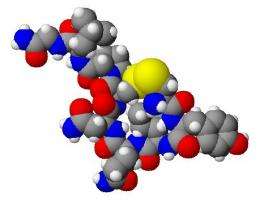Genetics or social environment: Who wins in the influence of behaviors?

Interactions between individuals of the same species shape many aspects of their biology, including their social behavior. Social genetic effects occur when the phenotype of an individual, defined as a set of their observable characteristics, is affected by the genetic features of others from the same species. These effects are common and imply consequences for the evolutionary history or health state of many animal species.
A team of researchers led by Rui Oliveira studied the role of oxytocin, an important molecule for the regulation of social bonding. Using the zebrafish (Danio rerio) as a model organism, they aimed at understanding how social genetic effects impact the interaction between the individual and the social environment or, in this case, the shoal. For that purpose, the team used two kinds of zebrafish: ones similar to the ones found in nature and others in which the oxytocin gene was removed, thus rendered no longer functional.
Placed in the presence of a shoal that was genetically similar to them or not, the individuals were assessed in their social preference, which describes their motivation to approach the similar shoal, social recognition, which focuses on the individual ability to distinguish between different shoals, and social integration and influence, which quantify, respectively, how well the individual can integrate himself in a shoal and how much it can influence its behavior.
The results of the study show that both the social preference and social integration and influence change depending on whether the shoal has oxytocin or not. On the contrary, it's the genetic features of the individual that determine the ability to create memories and therefore distinguish between different shoals. "The genetic differences of the social group interact with the ones of the individual during the acquisition of social behaviors and development, and in some cases they can revert behavioral characteristics associated to oxytocin," explains Rui Oliveira.
More information: Diogo Ribeiro et al, Genetic variation in the social environment affects behavioral phenotypes of oxytocin receptor mutants in zebrafish, eLife (2020). DOI: 10.7554/eLife.56973
Journal information: eLife
Provided by Instituto Gulbenkian de Ciencia




















